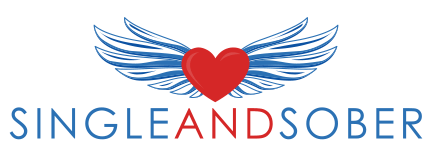
The genre of addiction recovery literature is ever growing with new offerings available almost daily. There are specific areas of interest in this genre including “How to”, “Early Sobriety”, and “Memoirs”. I am going to share a few of my “favorites” in the How to and memoir areas. This is by no means a comprehensive list nor can I cover all the different genres in addiction literature in one article. But let’s get started!
First, “How to” (get sober):
- No list will ever be complete without the basic text (often referred to as The Big Book or The Blue Book) of Alcoholics Anonymous (http://www.aa.org/). Written in 1939, this tome authored by Bill Wilson and physician and surgeon Bob Smith, MD has sold over 30 million copies and ranks amongst some of the best selling books of all time. The book has spawned the biggest and best known (though not necessarily the most effective) approach toward the treatment of addiction. AA considers addiction a three-fold disease – body, mind, and spirit, and the text describes a program of recovery addressing those three areas.
- When AA Doesn’t Work For You: Rational Steps to Quitting Alcohol by Albert Ellis. I will disclose right now that my post-graduate training was with the late Albert Ellis in Rational Emotive Behavior Therapy. The book approaches maladaptive thoughts and beliefs and ways to address them so as to uncover and resolve self-defeating behaviors (such as substance or process addictions). REBT was the precursor to CBT (Cognitive Behavioral Therapy) which informed DBT (Dialectal Behavioral Therapy) significantly.
- Facing Our Fears by Darryl Duke (http://darrylduke.org/) is a new entry in the “How to” genre. Duke shares his struggles with alcohol and his participation in Alcoholics Anonymous as his first step into sobriety. But that wasn’t enough and Duke went on to create both a sober and more spiritually satisfying life. I spoke with Duke about his book and program and I asked him how his program differed from AA. Duke replied, “Although my earlier beliefs about recovery were spawned from the AA literature, some of my views changed as I became more knowledgeable about addiction through the fields of science and medicine. My approach differs in a few ways, number one being we don’t have to be anonymous to find meaning and greater happiness in life. We also don’t need to refer to ourselves as alcoholics and addicts. These can be strong words to people who think they have a problem with a substance, but are too ashamed to seek help. I wrote the Five Simple Concepts of Creating Our Path to help people who no longer find fulfillment in AA.”
Memoirs:
Now memoirs can be a dicey business and I have read a great deal of addiction recovery memoirs. Some can be truly life changing reads. A well written addiction and recovery memoir can take the reader (someone familiar with addiction or not) to a place they have never been before and can offer a type of saccharine free redemption that comes from the reality of the story. Other memoirs….well, often the craft of writing is lost in the gory details. So it is a thin line between telling an honest, heartfelt, and real story and just going for the shock value. But when the writing is good and the story well told, some addiction memoirs can be quite the brilliant read.
- Love Junkie (http://www.rachelresnick.com/) by Rachel Resnick is one of them. Resnick’s addiction is a process addiction as opposed to a substance addiction. She is addicted to finding the love and intimacy the reader learns she was withheld as a child. This yearning leads her to painful and dangerous places and reopens the wounds of her childhood. I had the opportunity to ask Resnick a few questions. I asked her what “works” in dealing with her love addiction. She responded, “I’m rigorous about doing a morning waking ritual. This includes reading, prayer, meditation and journal writing. I’m a different person when I don’t ground myself this way. Root myself in recovery, in health. You know that Native American myth about all of us having two wolves inside us, the Good Wolf and the Bad Wolf? The one we feed is the one who wins. Sometimes I feed the Addict. When I’m mindful, I starve the addict and feed the Healthy me. The higher self. I’ve got to groom myself for awareness, and the electric flash of insights. For me, it’s a deeply spiritual journey.” I also wondered if she saw her addiction as something she had resolved or a remaining part of her she deals with on a continuous basis? Resnick replied, “Every day is a new commitment. To health, intimacy, grace. One definition I use for addiction is that we use to avoid feeling our feelings. So if I ignore my feelings, I’m at risk. Another definition I use is that we use to avoid creative responsibility. So if I’m distracted and unproductive, I’m at risk. I believe we are all given gifts. Our mission while alive is to share those gifts on as large a scale as possible. That doesn’t happen when we are living in fantasy, when we fuel an unhealed self. So like faith, like creativity, like relationships — staying in recovery and health requires practice. It requires focus. It requires us to choose.”
- Dangerous When Wet: A Memoir of Booze, Sex, and My Mother by Jamie Brickhouse (http://www.jamiebrickhouse.com/) is at times outrageously funny and deeply poignant. Brickhouse tells the story not only of his addiction to alcohol, drugs, and sex and his near death as a result of them but also his relationship with the most important person in his life, his Mama Jean. Brickhouse takes us from Texas to the publishing industry in NYC and from his childhood to his life as a man grappling with his sexuality. The most complicated relationship in his life is with Mama Jean yet it is Mama Jean who saves him from the life that was killing him. I asked Brickhouse if he considered addiction a metaphor for some deeper need. He responded, “The answer to the existential question to life’s disappointments in the title of the song “Is That All There Is?” is to break out the booze and have a ball, so for the addict, alcohol and drugs are way to fill the void and efface fear. I don’t think addiction is a metaphor but a solution to unfulfilled needs that eventually becomes a grander problem than any of the problems it sought to erase.” As relationships weighed heavily in his memoir, I asked him how has addiction and recovery impacted his relationships. “Recovery has taught me the meaning of acceptance and learning to accept people for who they are and not try to change them. I take what I like from them, and leave the rest, and if what I don’t like overwhelms, then I detach. Also, just as I now show up—metaphorically and literally—for myself, I’m present for those near myself, I’m present for those near and dear in my life.”
- Lighting Up, How I Stopped Smoking, Drinking, and Everything Else I Loved in Life Except Sex by Susan Shapiro (http://www.susanshapiro.net/) is a witty, biting memoir of of Shapiro’s process of giving up her numerous addictive behaviors. Therapy is a large part of her journey and Shapiro almost becomes addicted to that! Shapiro told me, “I think addiction can be a metaphor for insatiable hunger and missing love. I quote my shrink in Lighting Up who says “Underlying every substance problem I’ve ever seen is a deep depression that feels unbearable.” Another quote Shapiro shared from her psychiatrist was “addicts depend on substances, not people.” What makes this memoir particularly engaging is Shapiro’s sharp, clean writing style. Shapiro told me a comment from her psychiatrist has now become her mantra, “Lead the least secretive life you can”
- The Big Fix by Tracey Helton Mitchell (http://traceyh415.blogspot.com/) is unique from most memoirs. Helton does not take us on the long journey of her addiction. Yes, there are memories and reflections on the addict days but Helton’s book is mostly about her resurrection. “I think that the vast majority of people that read my work are familiar with how to get high. What they are looking for is tools to get or stay off drugs.” Helton told me. “I wanted to provide that for them in a safe and helpful manner.” I asked Helton what sobriety looks like now after multiple years clean and sober. “My recovery is flexible so it changes a lot from year to year. I have focusing on getting outside and walking an hour a day 3-5 days a week. That has helped. I attend meetings sparsely. I write. I’m also of service to others.”
- What The Stone Remembers (the Canadian release of this book was titled There is A Season) by Canadian poet Patrick Lane (http://www.patricklane.ca/) is one of the most heartbreakingly brutal and tender memoirs I have ever read. This memoir is focused on Lane’s first year of sobriety at age 62. Lane brings the reader through the seasons as they occur in his garden (he is a long time avid gardener). Juxtaposed with his memories of a brutal past, both in his upbringing and in his almost 5 decades as an alcoholic, Lane goes into exquisite detail regarding the transitions in his garden. The theme of leaving and searching invades much of Lane’s early life. He writes, “My quest has always been to find what I could not leave.” And though Lane does not physically leave his home and garden during his first year of sobriety, his memories takes us to distant places, both geographically and historically. This is a poet writing his life at the point of transition and transformation. Sobriety is a place Lane chooses not to leave after a lifetime of leaving. Perhaps Lane’s exclamation; “We break our path when fear tells us to live” simply explains his motivation to turn his life around at age 62.
- Girl Walks Out of A Bar by Lisa Smith (http://www.lisasmithauthor.com/) may initially seem like a memoir of a “high functioning alcoholic/addict”. Smith is a corporate lawyer in a prestigious NYC firm and uses a Town Car to make her scores but there is no glorifying addiction here. Smith spirals and experiences the inevitable consequences of addiction including divorce. I asked Smith what it was like to write a memoir of such a deeply personal and painful time in her life. “I started writing as soon as I left detox in 2004 as a way to explain to my friends and family what had happened. I had hidden my addiction from them and they had a million questions for me (along with some confusion and even anger). I wrote at 5am each morning before getting ready for work. It quickly became my favorite hour of the day because the process was so cathartic for me. The more honest I was and the deeper I dug, the better I felt, so I just kept going.” I asked her what kind of feedback she had received from the book and she responded, “The feedback has been incredibly gratifying. When I was in the throes of my addiction, I felt completely isolated and saw no way out. Once I decided to turn my writing into a memoir, my goal became to help the next person struggling with addiction to feel less alone. I feel so fortunate to say that the book seems to be giving some people a story with which they can identify and, hopefully, find some comfort in the fact that we don’t go through this alone. That’s also why I felt so strongly about going public under my real name. I wanted to raise my hand and say, “Yes, I’m an alcoholic/addict and it’s OK to say so.”
 Regina Walker is a writer, photographer and psychotherapist in NYC. Follow her on Twitter @ReginaAWalker.
Regina Walker is a writer, photographer and psychotherapist in NYC. Follow her on Twitter @ReginaAWalker.

